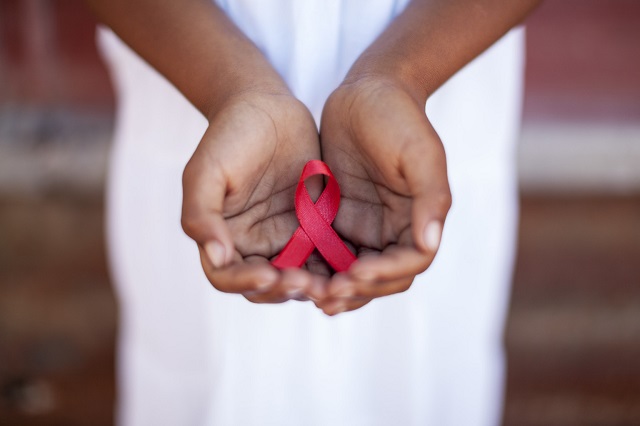
WHO declares Dolutegravir safe for all populations
HEALTH | JULIAN SABIITI | Pregnant women and those of childbearing potential can now use the HIV drug Dolutegravir (DTG). The World Health Organisation (WHO) made the recommendation in a statement released on July 22.
The WHO statement was a reversal of a recommendation made in May 2018 when results from a study carried out in Botswana showed that using DTG during early stages of pregnancy might be harmful to the fetus and it may cause side effects like malformation of the spinal cord.
Women living with HIV are a sensitive group as there is more than one life being affected in the case of pregnancy.
In September 2018, Uganda became the second country in Africa to start using DTG. Kenya was the first having launched it in June 2017. By July 24 the Ministry of Health had shifted 380,000 people living with HIV/Aids to Dolutegravir (DTG) as the preferred first-line and second-line treatment. To date, 82 low- and middle-income countries are transitioning to DTG-based HIV treatment regimens.
Uganda had planned that by the end of 2019, DTG would be rolled out across the entire country.
According to Dr. Joshua Musinguzi, the AIDS Control Program Manager at Ministry of Health, DTG was seen as a good intervention in the emerging challenge of dealing with the rising number of patients who were developing resistance to first-line drugs.
“DTG [Dolutegravir] has a good amount of viral load suppression significance and it’s less prone to resistance. It has a higher generic barrier with fewer side effects and is easier to swallow,” Musinguzi said at a meeting on controlling the pandemic. It was held under the theme: ‘Implementing a public health response for HIV pandemic control in Uganda’.
But as the roll out started, Musinguzi cautioned women within the reproductive age about the results of the study carried out in Botswana.
The study results indicated that 4 out of every 426 infants born to women who became pregnant while using DTG had neural tube defects (birth defects of the brain and spinal cord that cause conditions such as spina bifida).
For this reason, WHO advised that women within the reproductive age use the original Efavirenz (EFV) until further research could be carried out and the risk better assessed.
Musinguzi said the policy was that DTG would only be given to women within the reproductive age if they were on a long term Family Planning method, including sterilisation.
Women activists opposed the Ministry of Health decision, branding it unfair. They said women should have been consulted before the decision to stop them from taking the drug was made.
Since a similar decision in other countries, including Kenya, resulted in the same response from women, the WHO revised its guidelines in July to make sure that women living with HIV could access all necessary information and make decisions on their own.
On May 18 the U.S. President’s Emergency Plan for AIDS Relief (PEPFAR) released a statement acknowledging the warnings issued by WHO. The statement also said that data from the study in Botswana was limited at the time and that further research would be done from May 2018 to February 2019.
“These data will help provide more information about the safety of DTG for women living with HIV during conception,” the statement said.
Results from new research encouraging
The new July 22 WHO recommendation was informed by results of these studies.
Earlier this year, 12 out of 18 countries surveyed by WHO reported pre-treatment drug resistance levels exceeding the recommended threshold of 10%.
At the 10th International AIDS Society (IAS) Conference on HIV Science held on 21 June 2019 in Mexico, the World Health Organization (WHO) recommended that all countries immediately adopt dolutegravir-based regimens as the preferred first-line treatment for HIV.
“New data from two large clinical trials comparing the efficacy and safety of DTG and EFV in Africa have now expanded the evidence base. The risks of neural tube defects are significantly lower than what the initial studies may have suggested,” the statement said.
“Based on new evidence assessing benefits and risks, the WHO recommends the use of the HIV drug Dolutegravir (DTG) as the preferred first-line and second-line treatment for all populations, including pregnant women and those of childbearing potential,” the WHO statement added.
DTG has several advantages over the existing HIV treatment drugs such as Teneovur Lamivudine Efavirenz (TLE).
DTG combines three ARV drugs into one pill that is swallowed once a day, being better tolerated by patients and most importantly faster viral load suppression. The drug also came at a relatively lower cost of $6.5 (about Shs24, 986) monthly per person, down from $6.9 (about Shs26, 524) charged by manufacturers of EFV. With these advantages, DTG was the ideal drug.
The drug was introduced in April 2014 by UK based company ViiV Healthcare as first line treatment for people living with HIV. It was introduced to 92 low and middle income countries which are home to 94% of adults, and 99% of children, living with HIV.
The fight against AIDS has gained a lot of attention and effort in the past few years, especially following the 90-90-90 ambitious treatment target to end the AIDS epidemic. The goal is to ensure that by 2020, 90% of all people living with HIV will know their HIV status, 90% of all people with diagnosed HIV infection will receive sustained antiretroviral therapy and 90% of all people receiving antiretroviral therapy will have viral suppression. Uganda has managed to get to 80-80-80.
****
 The Independent Uganda: You get the Truth we Pay the Price
The Independent Uganda: You get the Truth we Pay the Price


